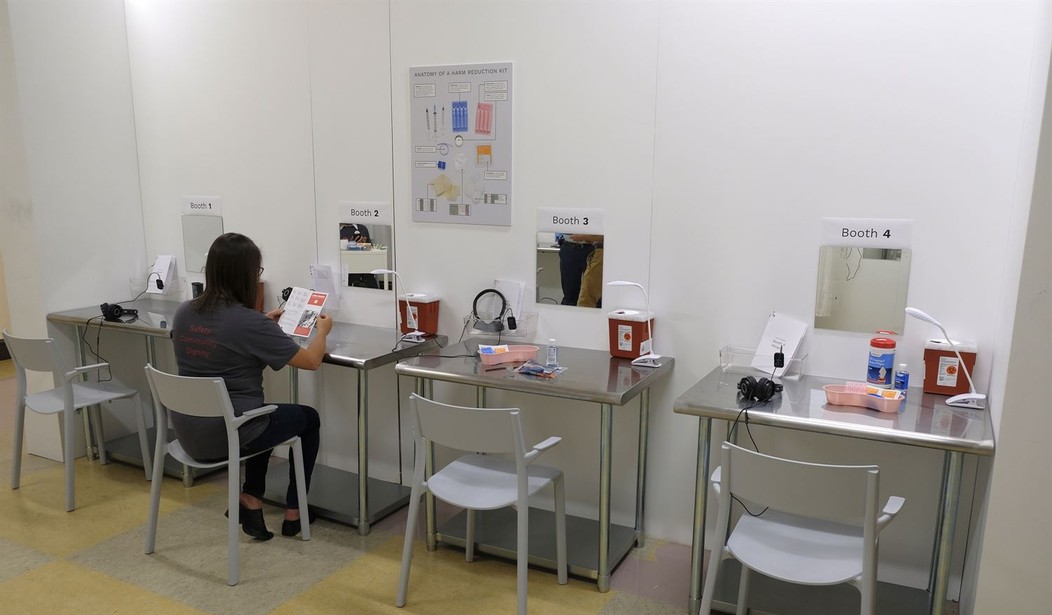I grew up in the 1960s and 1970s in Southern California, surrounded by racial, economic and worldview diversity. At the time, California was divided politically between the northern and southern regions of the state, but it seemed there was a common hope for unity for most Californians.
Today, as a resident of Northern California and as a college president, I am increasingly concerned that one party rule is bringing our state to a place of economic, social and moral decay that is both unparalleled and will be hard to recover from if fully realized.
Two controversial bills moving through the California legislature, both authored by liberal Senator Scott Weiner, serve to illustrate this present reality:
California Senate Bill 57 (SB-57), provides for “overdose prevention programs” for the next five years in in San Francisco City and County, Los Angeles County and Oakland that would:
“...approve entities to operate overdose prevention programs for persons that satisfy specified requirements, including, among other things, providing a hygienic space supervised by trained staff where people who use drugs can consume preobtained drugs, providing sterile consumption supplies, providing access or referrals to substance use disorder treatment, and that program staff be authorized and trained to provide emergency administration of an opioid antagonist, as defined by existing law.”
In essence, this bill creates “safe spaces” staffed by medical personnel for substance users to consume drugs.
Recommended
If this bill passes, we are effectively giving over an entire segment of our society to addiction and destruction.
In 2019, California ranked first in the nation for drug overdose death rates with 6,198 deaths occurring in the state that year. From November 2019 to November 2020, the drug overdose death rate rose by 43 percent.
According to the Los Angeles County Department of Public Health, “drug overdose caused individuals to, on average, die 30 years prematurely in LAC [Los Angeles County].”
As the Los Angeles Times reports, “drug overdoses killed 621 people in the first 11 months of 2020” in San Francisco. A quote from Kristen Marshall, program manager for the DOPE (Drug Overdose Prevention and Education) Project evidences the horrific magnitude of the problem: “If we didn’t have Narcan, there would be no room at our morgue.”
Substance abuse has become a deadly epidemic in this nation and in California, so why would we enact laws that allow people to persist in their potentially fatal addictions? Such legislation demonstrates not a love for our neighbors, but a love of political power.
Additionally, California Senate Bill 519 (SB-519) decriminalizes the use of — but not the sale of — psychoactive Schedule I drugs like LSD, MDMA, DMT and others for those 21 and older. These drugs are not only dangerous to the user, but they are also a danger to others, as some of these drugs, like ketamine, have been used to perpetrate sexual assault.
Sen. Weiner evidently believes our society would be better off if we ended the “failed war on drugs” and instead provided freer access to drugs and hygienic conditions while using them.
Both bills have passed in the state Senate and await votes in the state assembly, so it seems the California legislature thinks the best way we can help people trapped in the cycle of addiction is to make it safer for them to remain addicted rather than provide the critical help and support they need so they can be free from the pain of their addiction.
This misguided legislation completely ignores the dire consequences of drug abuse, like organ damage, memory impairment, mental health issues, domestic violence and a host of others.
My intention is not to oversimplify complex issues. We should absolutely strive to stymie the spread of disease and end the stigma surrounding substance use and abuse. Yet, for however many people could be helped by these policies, it seems many more could be hurt by them.
I believe most Californians want compassionate and creative responses to issues of homelessness, poverty and addiction. What we do not want is to further destroy precious human lives by fostering more addictions and dependence. Rather, we want people to live with dignity as they journey towards wholeness. We need to focus on providing those struggling with addiction holistic care for their physical, mental, emotional and spiritual wellbeing.
California residents, if you agree, please be sure to let your legislator know so they can work towards providing responsible support for people in pain.
John Jackson is president of William Jessup University, one of the top private Christian universities in the nation.

























Join the conversation as a VIP Member